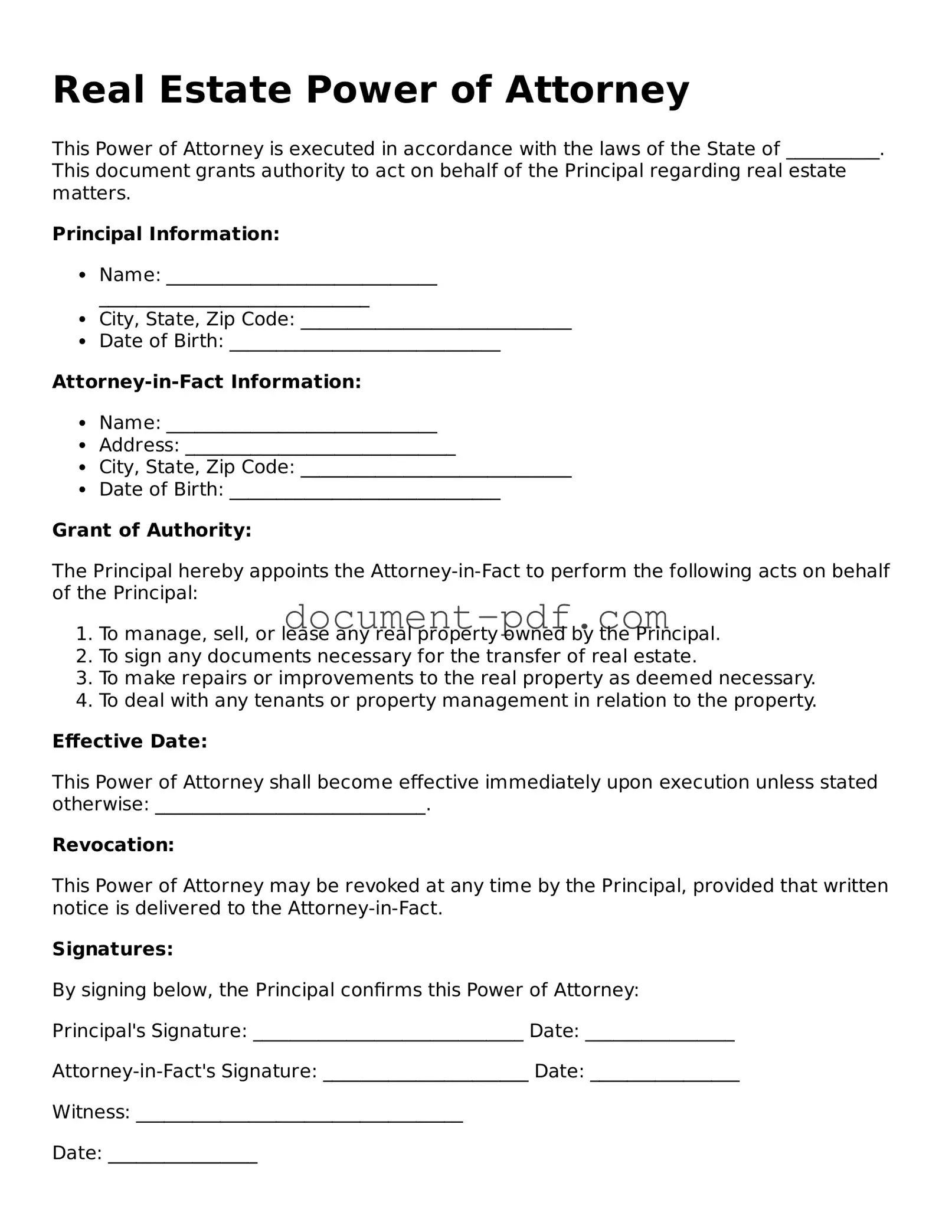The Real Estate Power of Attorney (POA) is similar to a general Power of Attorney. Both documents allow one person to grant another the authority to act on their behalf. In the case of a general POA, the scope can cover a wide range of decisions, including financial and legal matters. This flexibility means the agent can manage various aspects of the principal's life, from banking to real estate transactions. However, the Real Estate POA is specifically tailored for property-related actions, such as buying or selling real estate, making it more specialized.
Another document that shares similarities is the Durable Power of Attorney. Like the Real Estate POA, a Durable Power of Attorney remains effective even if the principal becomes incapacitated. This feature is crucial for ensuring that decisions regarding real estate can continue to be made without interruption. While a Durable POA can cover any area of decision-making, including health care and financial matters, its durability makes it particularly important in real estate transactions, where timely decisions can be critical.
The Limited Power of Attorney also bears resemblance to the Real Estate POA. This document allows the principal to specify particular powers granted to the agent, which can include real estate transactions. The limitation can be time-bound or specific to certain actions, such as selling a property. This specificity ensures that the agent's authority is confined to what the principal deems necessary, providing a level of control not always present in broader POAs.
Understanding the various types of Power of Attorney, including Limited, Durable, General, Medical, and the importance of documentation like a Fiduciary Agreement or a Trust Agreement, is crucial for effective legal and financial management. For those in Texas, utilizing resources such as Texas PDF Templates can simplify the process of creating and customizing these essential documents to suit specific needs.
A Quitclaim Deed is another document that relates to real estate transactions, albeit in a different manner. While the Real Estate POA grants authority to act on behalf of someone else, a Quitclaim Deed transfers ownership interest in a property without guaranteeing the title's validity. This means that if you are acting under a Real Estate POA, you might use a Quitclaim Deed to facilitate the transfer of property rights. The two documents work together in real estate dealings, with the POA enabling the action and the Quitclaim Deed executing the transfer.
Lastly, the Real Estate Purchase Agreement shares a connection with the Real Estate POA. This agreement outlines the terms of a real estate transaction, including price and conditions of sale. When an agent acts under a Real Estate POA, they may sign this agreement on behalf of the principal. The Purchase Agreement requires the authority granted by the POA to be valid, ensuring that the agent can legally bind the principal to the terms of the sale.

